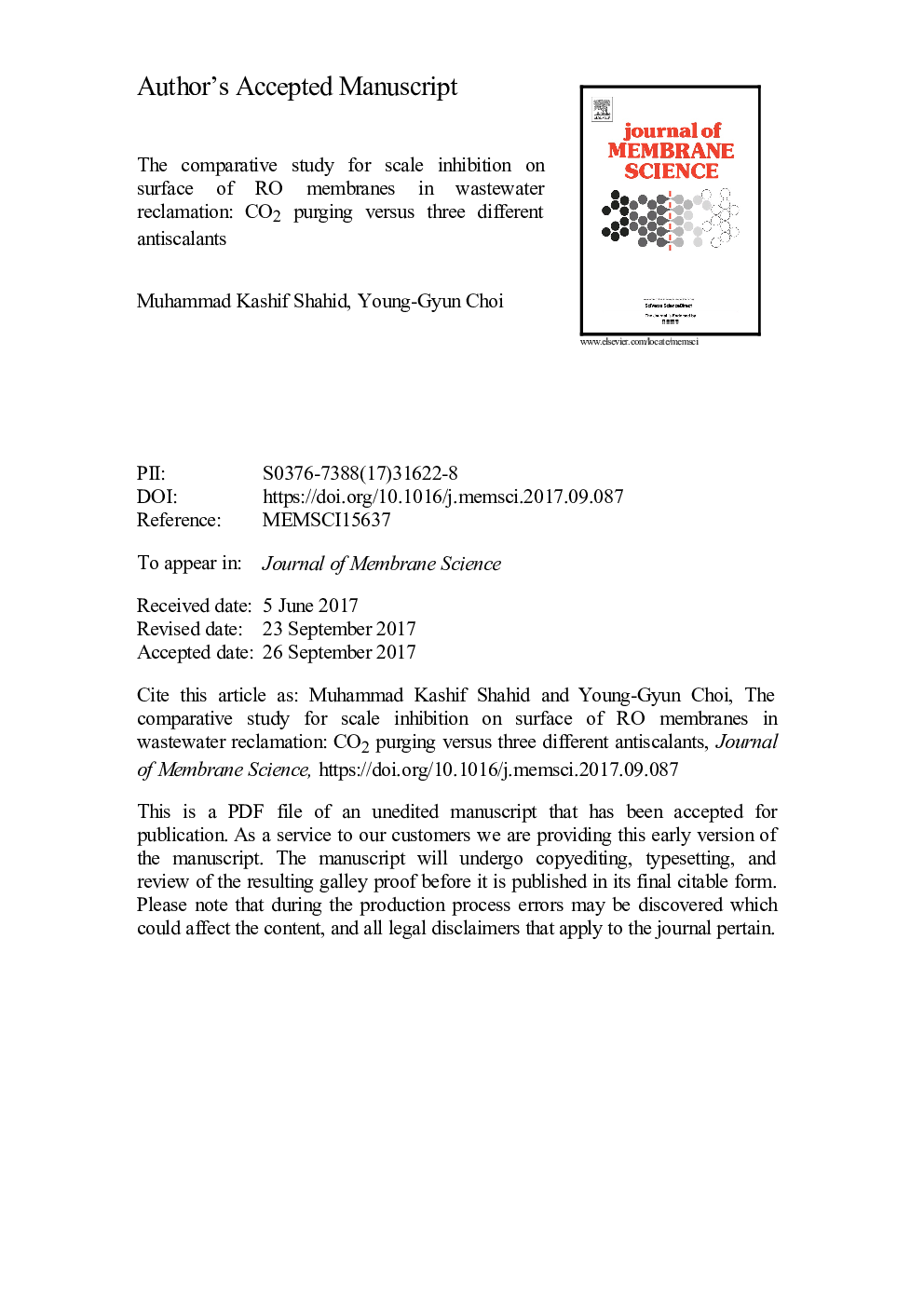| Article ID | Journal | Published Year | Pages | File Type |
|---|---|---|---|---|
| 7020374 | Journal of Membrane Science | 2018 | 20 Pages |
Abstract
The application of reverse osmosis (RO) membrane in wastewater reclamation is emerged as a potential technology. As far as the operational conditions are concerned, inorganic fouling is a major challenge for membrane treatment systems. At present various antiscalants and chemicals are commercially available for scale inhibition on the surface of membrane. In an earlier study we found that CO2 can effectively inhibit scale growth on the surface of RO membrane in wastewater reclamation. On the basis of previous study, the scale inhibiting efficiency of CO2 was compared with three commercially available antiscalants. The RO system was operated at constant applied pressure with four different scale inhibition methods including CO2, Flocon 260, Flocon 300 and Kuriverter N-500. The permeate flux decline was considered as an indication of scale growth on the membrane surface. The percent salt rejection and ionic mass balance was used to determine the scaling behavior of the RO modules. Membrane autopsy was done to determine the effect of CO2 and antiscalants on the membrane structure. The experimental data revealed that CO2 can effectively inhibit scale growth as compared with all of three antiscalants. However, the Flocon 260 was found better than other two antiscalants.
Related Topics
Physical Sciences and Engineering
Chemical Engineering
Filtration and Separation
Authors
Muhammad Kashif Shahid, Young-Gyun Choi,
